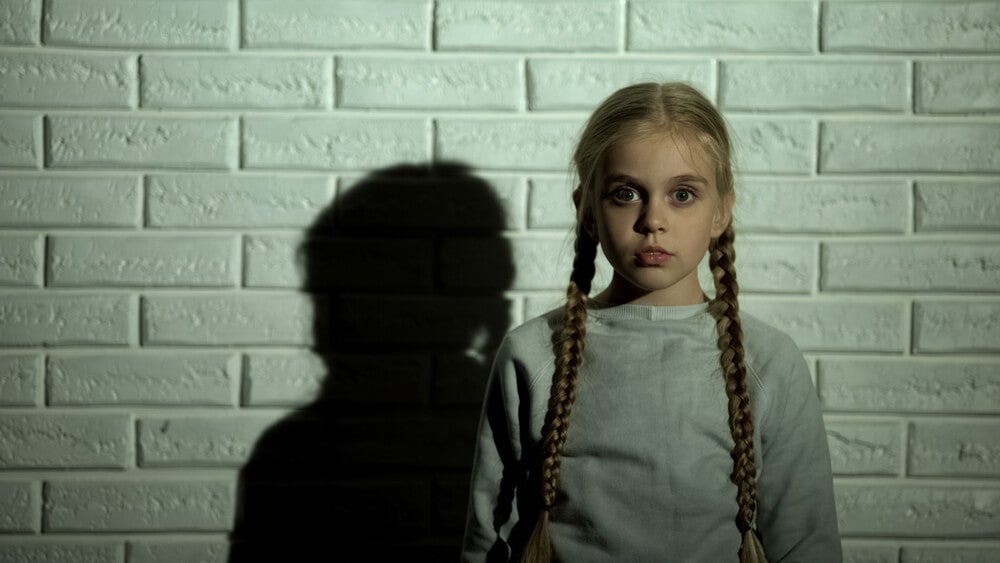Verbal abuse in childhood directly affects children’s self-esteem, however, we are not aware of all that this entails, because sometimes we can confuse it with the use of profphema, but it goes much further.
Verbal abuse is a direct attack on the person’s sense of worth, in this case children; In addition, word abuse also involves psychological abuse; in fact, according to data from the National Network for Child Traumatic Stress (NCTSN), psychological violence is the most common form of violence.
- It is very important that if we are parents be careful what we say to our children.
- That is why it is essential to verify our communication with them and.
- Above all.
- How we inform them of their mistakes.
The reason verbal abuse in childhood leaves an important mark is that childhood is a very critical moment in the evolutionary phase, the nervous system and the brain are very vulnerable to any environmental stimulus, so everything that happens outside influences the child in one way or another.
In addition, according to J. Pinel, the neurodevelopmental process occurs from conception to fetal period, continues during the postnatal period and does not stop until adulthood, so it is natural for children to be at a stage susceptible to neuropsychological damage.
On the other hand, a publication entitled Review of the Neuropsychology of Child Abuse: The Neurobiology And the Neuropsychological Profile of Child Abuse Victims discusses how verbal abuse can cause attention and memory problems, difficulties in intellectual and language development, and academic failure.
“Functional and structural changes in the brain seem to explain the future neuropsychological functioning of victims of child abuse. “
-Neuropsychology of child abuse and implications for school psychologists, AS Davis, Le Moss, M. Nogin, N. Webb-
However, how can verbal abuse be promoted in childhood so that it is more present than it should be, how do we hide it so that sometimes, instead of calling it by name, we justify it by pointing out that it is?Or? Educate how to think better?
Many parents don’t know how to educate their children more than always focusing on what they’re doing wrong. On the other hand, if they do something good, they do not appreciate it because they think it is what it should be; therefore, if a child protests, he categorically says “that’s what you should do. “
However, at a stage as delicate as childhood, focusing only on the negatives has serious consequences, in fact, most of the time, the focus is not only on what the child is doing wrong, but even makes him feel guilty about getting angry. your parents to do this, you must add the wrong choice of words to express these messages.
Compare one child to another or say, Are you stupid, can it seem innocent and someone can even justify that your father was so angry that he lost his temper; however, all of this can leave an irreparable mark on any child’s mind, especially if it is done on a recurring basis.
For example, if when she tries to solve a math problem, we call her “dumb?” In order not to get it right the first time, while we insist that his friend is always right, the child will consider that he has no way of doing it. This matter. In addition, you will also believe that you are a worse student than your friend.
You will immediately believe that there is nothing you can do to solve this problem, which will allow you to reject math in the future, it can also make you feel some fear of failure and, at the very least failed attempt in any area, will throw the towel at you because it will be labeled as “incapable”.
What self-image do we want the child to form with this kind of behavior, why do we forget that during childhood he builds his identity?An identity full of “I’m worthless,” “Is it my fault if my parents get angry?”, “I don’t do anything good,” “I’m stupid,” “Am I a mess?”And “I deserve the worst” will prevent strong self-esteem from being built.
«[?] Harmful acts, especially verbal ones, constantly telling the child that he is hateful, ugly, stupid, make him see that it is an undesirable burden. You can’t even call her by name, but she just treats her like “you” or “idiot”?or otherwise insulting.
? Beaten children (beaten Spanish children), Kempe and Kempe (1979) –
As we see, verbal abuse in childhood significantly affects children, it must also be said that sometimes parents do not realize that their frustration at work, their high level of stress, partner problems or the weight of multiple responsibilities are projected onto their children through their language. This is something to keep in mind if you want your children to be happy.
Managing emotions well, having empathy and, above all, learning to communicate positively with children, taking into account their self-esteem, is essential. After all, we don’t want to turn them into sad, insecure adults who feel powerless and end up setting limits they don’t really have.

